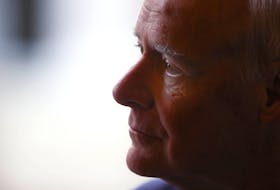One silver lining of COVID-19 is more leaders understand they have an important role in supporting the employee experience. Many accept that some employees working remotely are feeling more isolated and some are mentally fatigued because of all the uncertainty around the pandemic.
They are also facing other stressors, such as fear of catching the virus, worries about job security and being able to pay bills.
More leaders are demonstrating acts of caring like regular check-ins, more meetings to help teams feel connected and supporting policies that provide employees flexibility in determining where they want to work.
One of the common themes reported when I spoke to two groups of chief human resources officers is that senior leaders are more active in demonstrating and talking about how much they care for their employees and their mental health and well-being.
However, leaders are unsure about what they can do to help. The consequence is many are becoming mentally tired to the point several human resources officers expressed concern about an increase in leadership sick time and the risk of burnout.
All the caring is starting to take a toll. While the officers are confident leaders will keep trying to care, they’re unsure what they can do to help them and their employees get through the next couple of years, as the impact of COVID will not end when vaccines arrive.
The challenge for these leaders is caring is not enough. A critical part of my training as a mental health professional now focusing on the workplace is how to manage my emotions and self-care, as well as to understand how to have interactions with people struggling in a way that reduces the potential it will negatively affect my mental health.
Anybody who does the kind of work I do typically cares, but professional competencies obtained from training and experience enable them to avoid personalizing others’ concerns as they set healthy boundaries and help people day after day.
Most individuals have been promoted to leadership positions because of their loyalty to their organization or their subject matter experience. Typically, the criterion is not because they are good with people nor care.
COVID has been an extraordinary event and many leaders who may not have cared before are doing so, or at least trying. One amazing thing about human beings is how we show up for each other in the worst of times. This is why we have gotten through many challenges in the past and why we will get through COVID.
One thing organizations can do is to consider what kinds of skills leaders can develop to help them support and care for employees while lessening the toll on their mental health.
Three things leaders can do to obtain psychologically safe leadership competency:
- Take care of their own mental health. Like physical health, improving and maintaining mental health requires intention.
- Short courses can introduce leaders to what a psychologically safe leader is and how to support employees daily and when in crisis. Training is not a magic pill; it’s an opportunity to obtain new information. The magic is when a leader takes the new information and practices and over time develops their competencies.
- Leaders who are open to and welcome feedback from employees, peers, managers or a coach increase their opportunity to discover and learn how their behaviour is positively or negatively affecting their employees’ experience. Words matter but actions matter more. Feedback can help a leader gain perspective to avoid personalizing and focus on what they can control.








